Standards
Description
A year-long high school curriculum designed to introduce students to the central ideas of computer science and prepare them for the AP CS Principles Exam.
This curriculum aligns with the College Board’s new 2020 Computer Science Principles framework covering Creative Development, Data, Computing Systems and Networks, Algorithms and Programming, Computing's Impact on Society.
This introductory curriculum is designed for first-time computer science students with no prior coding experience and has no prerequisites beyond Algebra I.
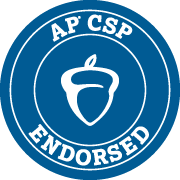
The curriculum introduces general programming concepts using Python, the most popular programming in introductory CS college courses. Students get a crash course in practical programming concepts, like creating procedures, using variables, and control flow.
Students must complete coding challenges from domains like finance, biotechnology, and environmental studies. The curriculum also teaches programming concepts and algorithms using Python, and then maps this knowledge to pseudocode that’s required for the AP CS Principles exam, as per specification on page 205 of the College Board AP CSP exam description.
In AP Computer Science Principles, students will explore the following big ideas in computer science while gaining foundational computational thinking skills:
- Understand the software development life cycle from identifying a problem to collaboration, design, implementation, and iterative improvement of a computing solution.
- Learn how computers represent data and "make decisions" — learn how to analyze and visualize data using charting and plotting techniques.
- Learn how to design and use algorithms—and how their efficiency impacts the execution of a program.
- Understand foundational computing concepts: how the Internet works, and learn more about advanced topics like fault tolerance, artificial intelligence, distributed systems, and parallel processing.
- Explore the impact of computing on society; including ethical and legal concerns, privacy, the digital divide, crowdsourcing, and other side effects.
- Prepare for both the Create performance task section and multiple-choice Exam.
Topics
- Python syntax
- Conditional logic
- Nested loops
- Automation
- Functions
- Simple loops
- Conditional loops
- Expressions
- Operators
- Data types
- Variables
- Turtle graphics
- Artificial Intelligence
- Lists
- Dictionaries
- Objects
- Recursion
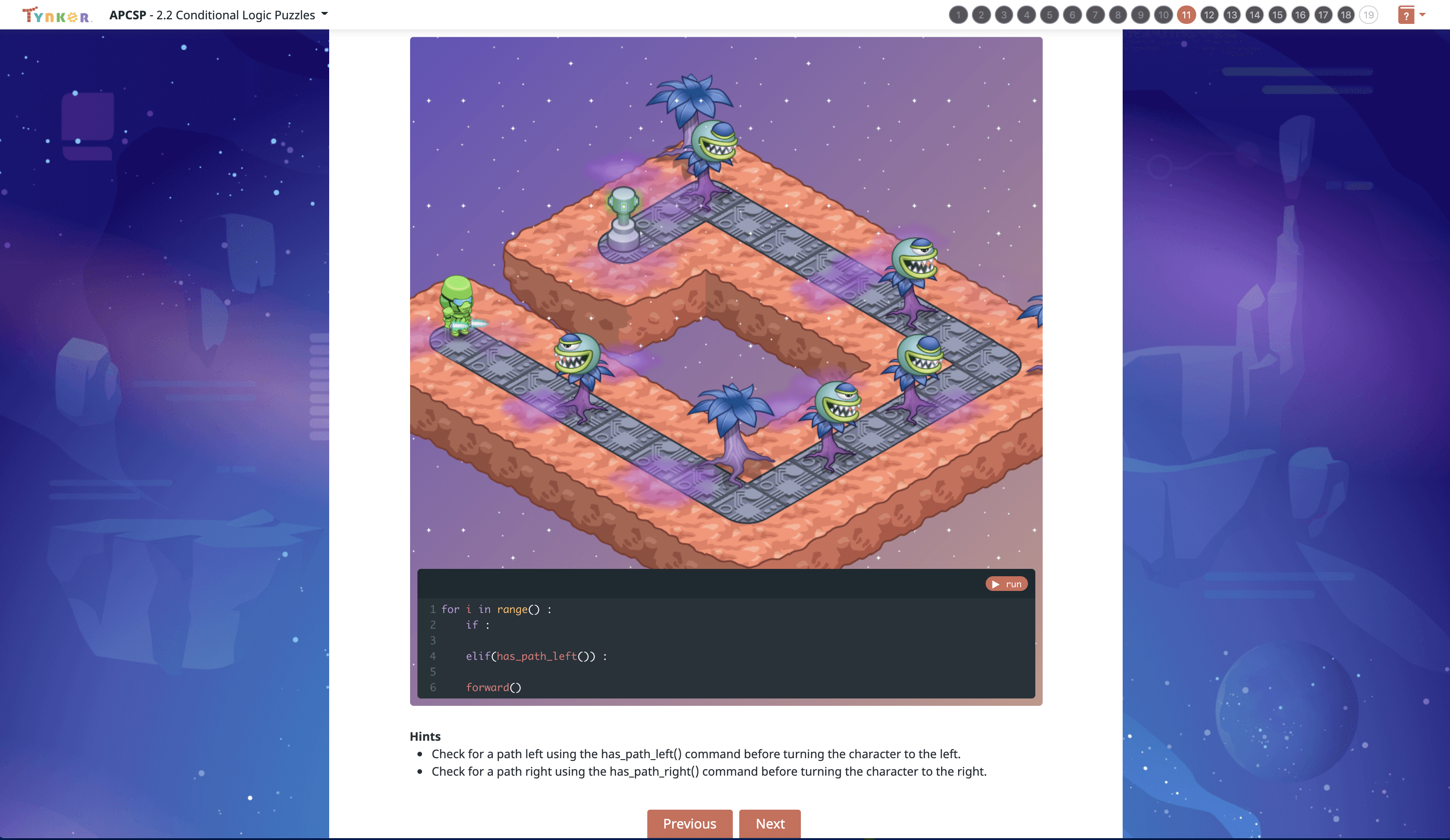

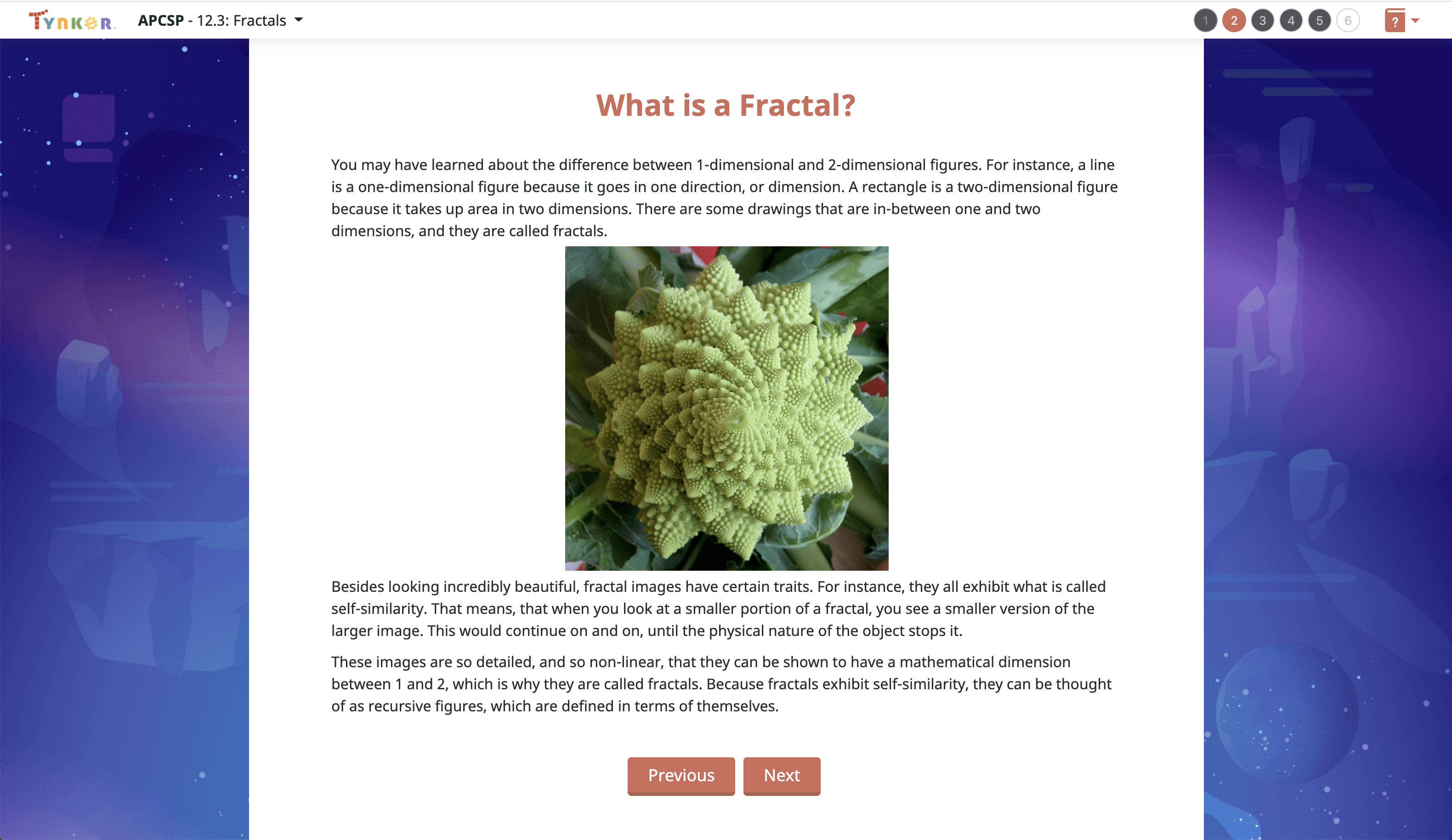
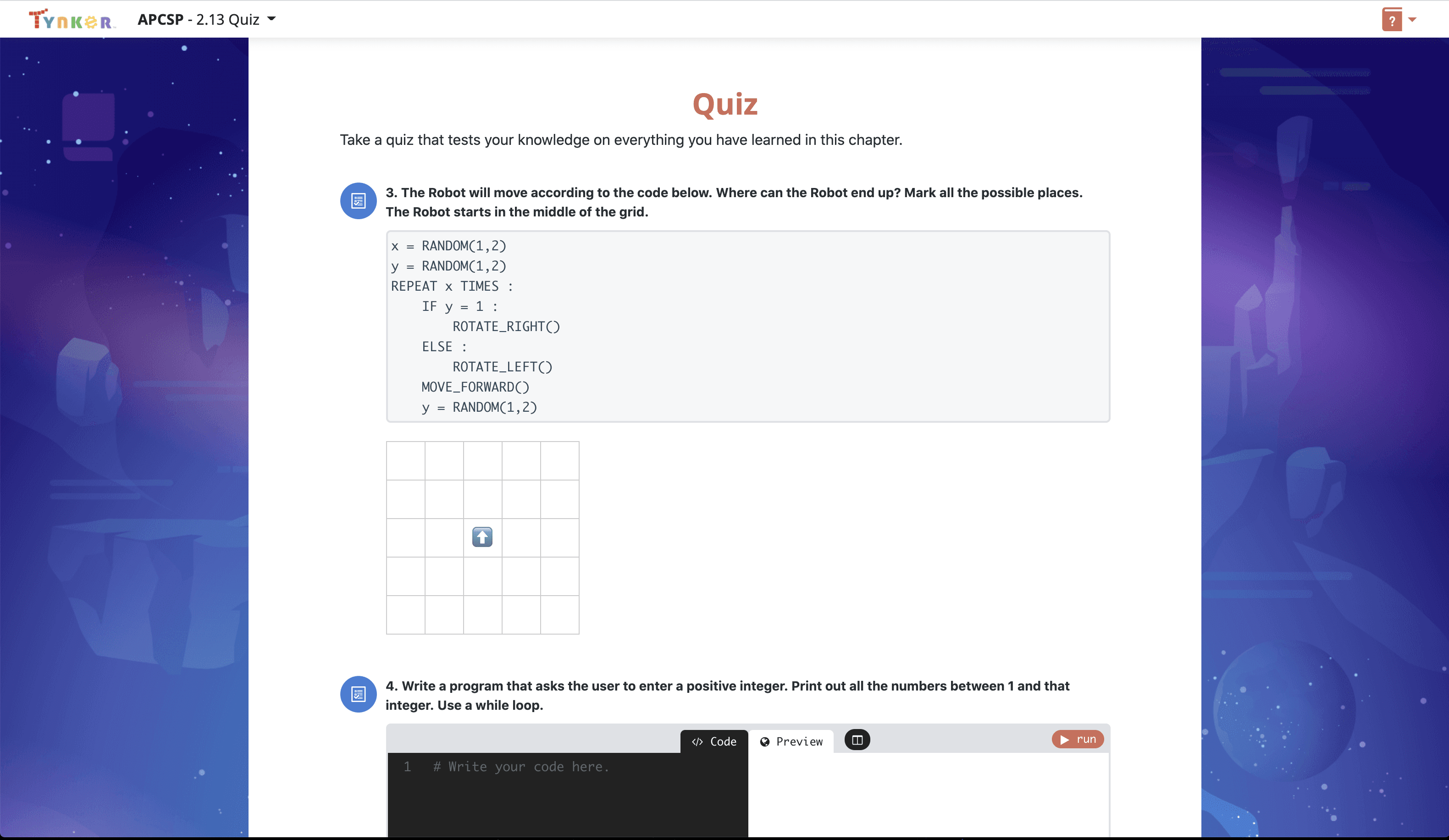
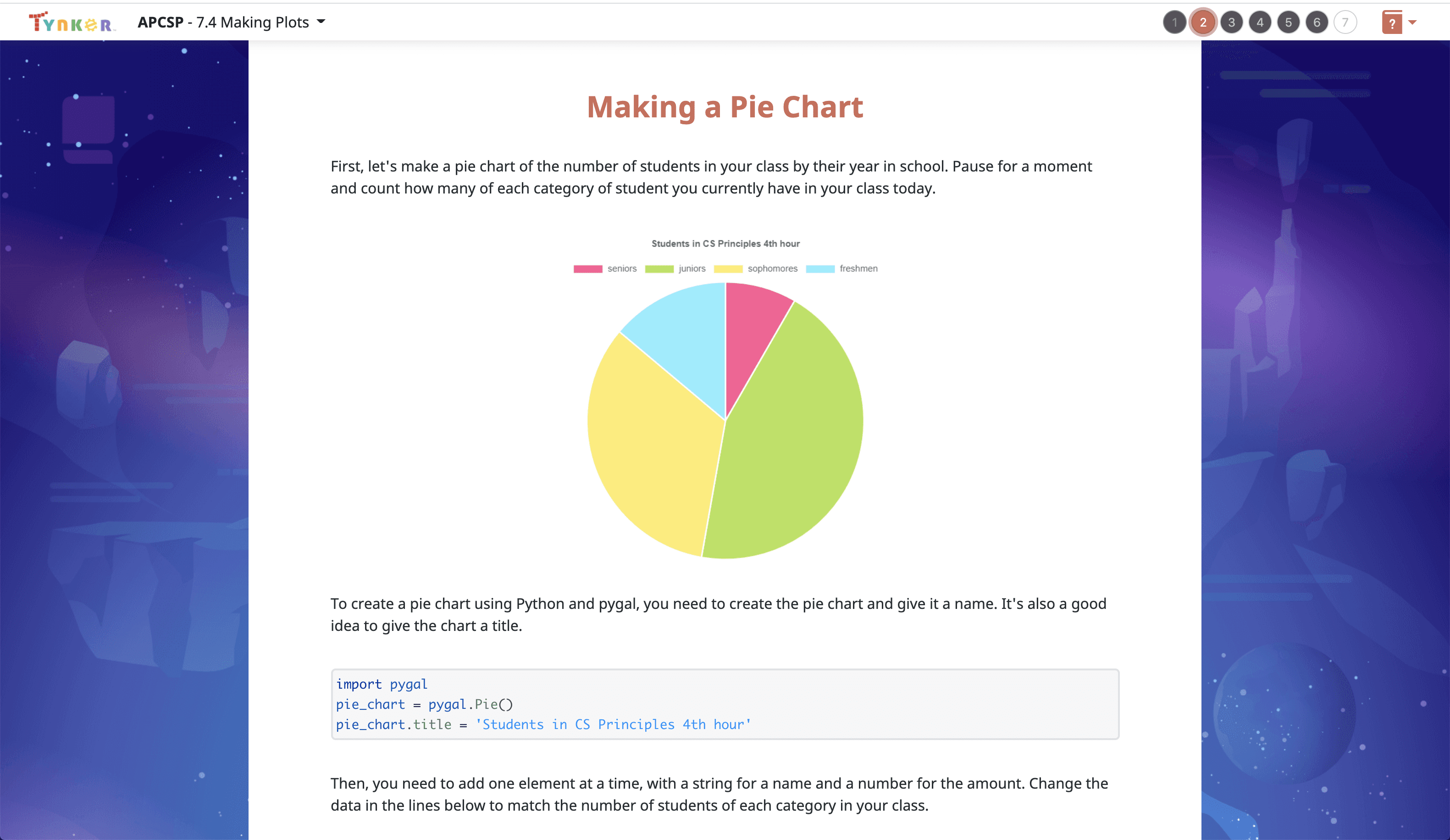
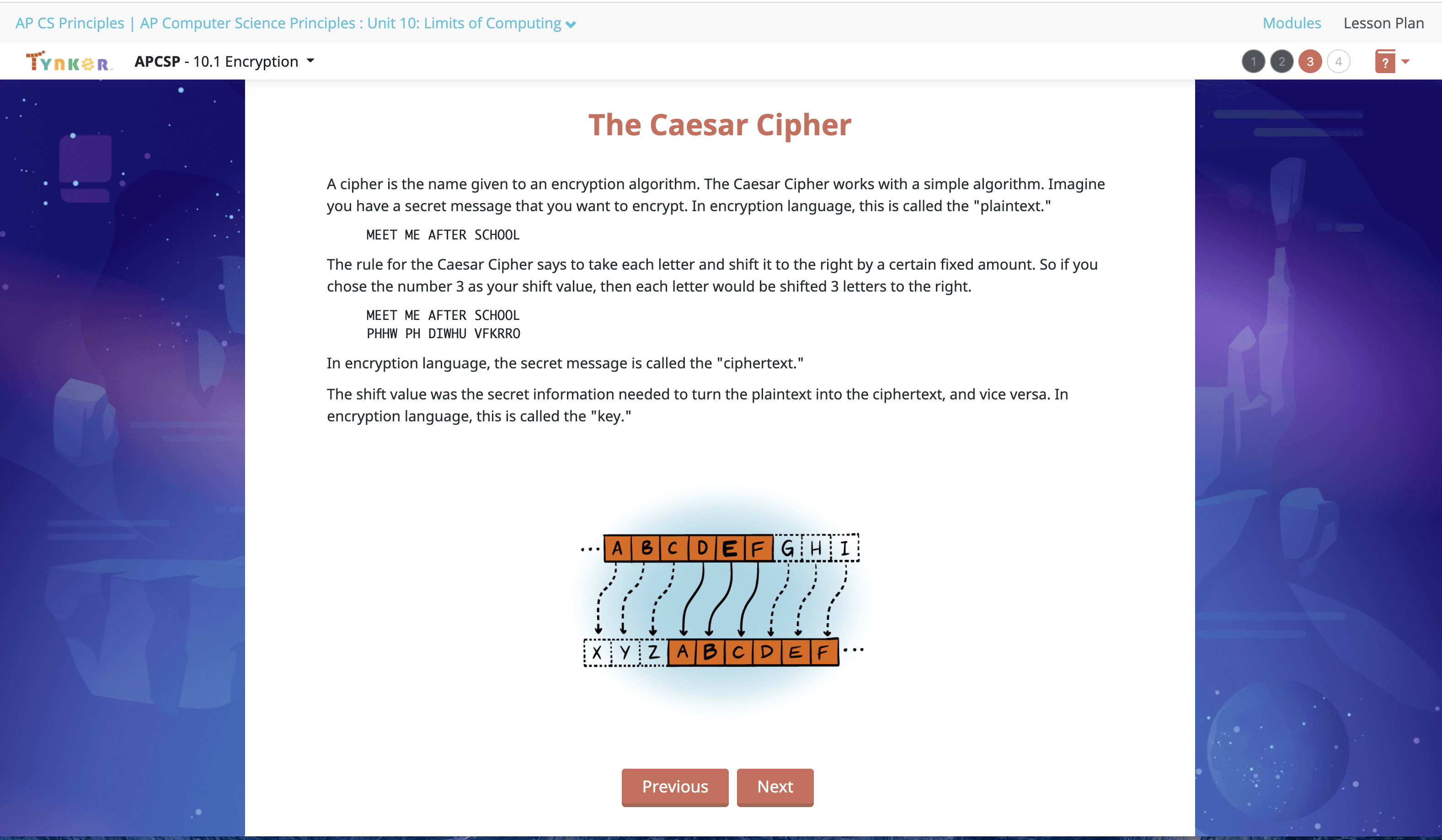
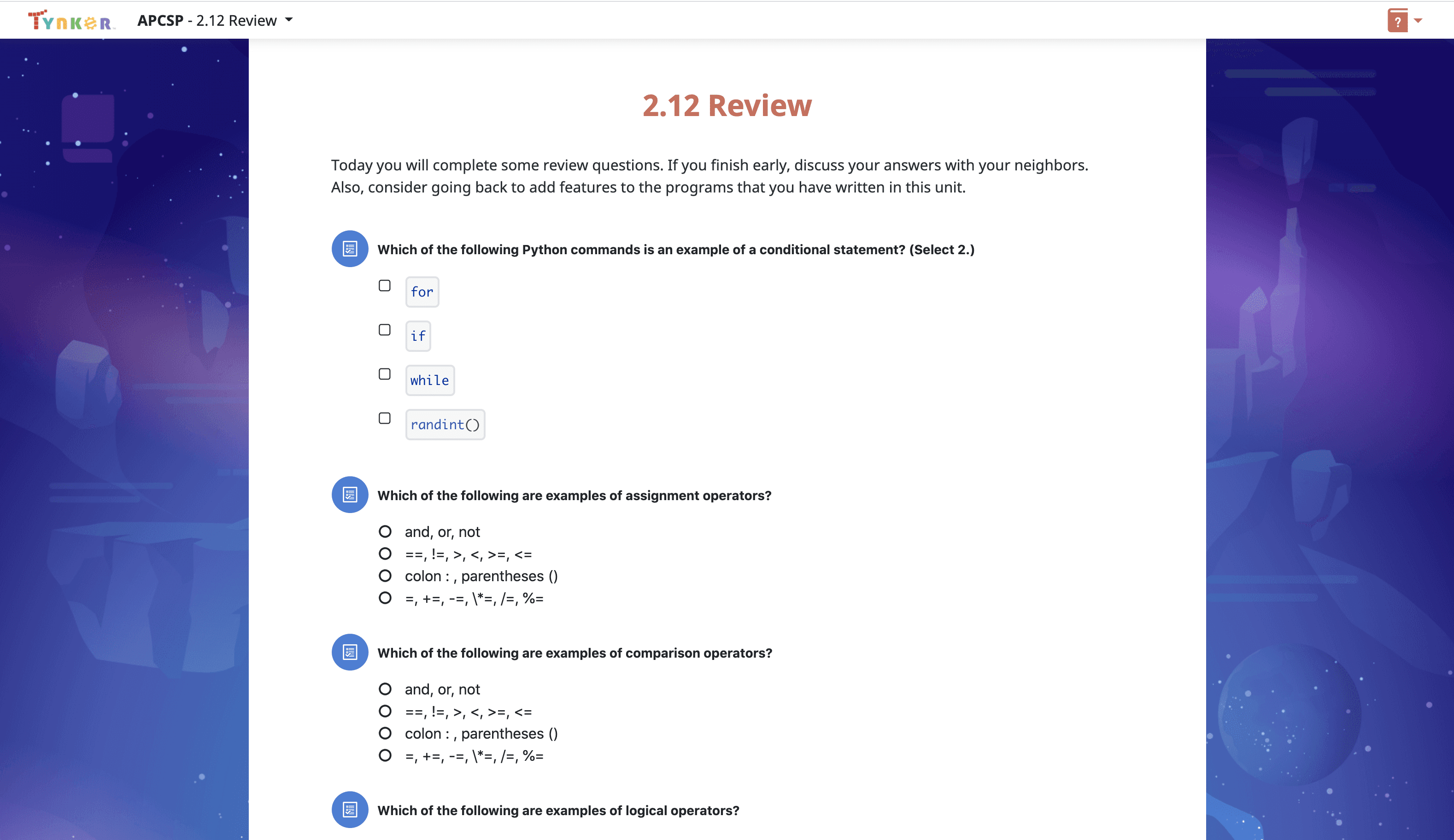
What Students Learn
- Big Idea 1. Creative Development
- Big Idea 2. Data
- Big Idea 3. Algorithms and Programming
- Big Idea 4. Computing Systems and Networks
- Big Idea 5. Impact of Computing
Technical Requirements
* Online courses require a modern desktop computer, laptop computer, Chromebook, or Netbook with Internet access and a Chrome (29+), Firefox (30+), Safari (7+), or Edge (20+) browser. No downloads required.